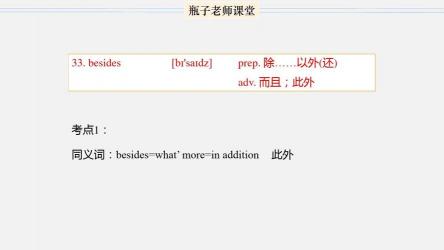exceptfor"与"except"的区别:含义、用法及常见示例
"except"和"except for"都表示排除关系,意思是"除了什么之外,不再有……"。然而,它们在用法上存在明显的区别。
"except"主要接名词或代词,通常表示同类之间的关系,常与不定代词如nothing、all、none、nobody、any以及every连用。例如,"You can have any of the cakes except this one."(除了这块蛋糕,你哪块都能吃。)以及"She saw nothing except snow."(除了雪她什么也没看见。)

"except"也经常接副词、介词短语,甚至是不带to的不定式或从句。例如,"She doesn't do anything except sit and watch TV."(除了坐着看电视外,她什么也不做。)以及"He usually goes to work by bicycle except when it rains."(除了下雨的时候,他通常骑自行车去上班。)
另一方面,"except for"的含义与"except"相似,但它是用于对某种基本情况进行具体的细节方面的修正。"except for"后接的词与句子中的整体词(主语)不是同类的,指从整体中除去一个细节、一个方面;而"except"后接的词与整体词(主语)一般是同类。例如,"I can answer all the questions except for the last one."(除了最后一题外,所有题目我都可以解答。)以及"Your writing is good except for a few grammar mistakes."(除了几处语法错误外,你的作文写得很好。)
当"except"用在句首时,通常会改用"except for"。例如:"Except for the ticking of the clock, his house was silent."(=His house was silent except the ticking of the clock.)除了时钟的滴答声,他的家中静悄悄的。
